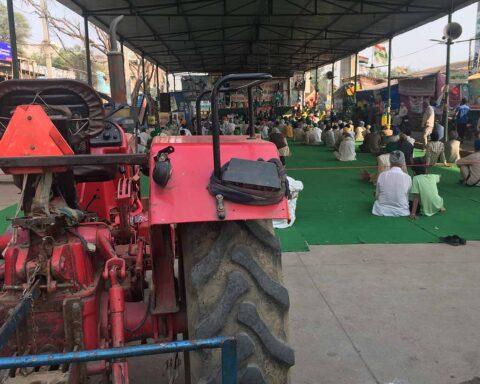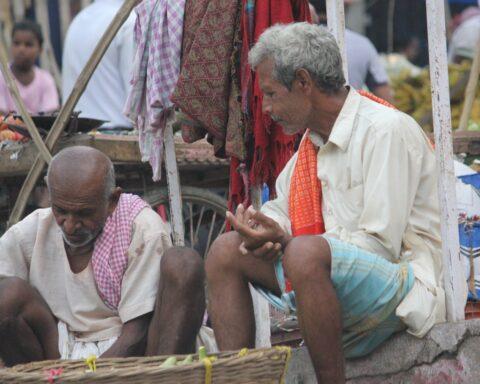India’s leading press bodies, journalist unions and digital rights organisation came together at a consultative meeting on May 28, 2024, organised by the Press Club of India, to pass a resolution demanding that the government should withdraw various provisions of newly enacted laws that infringe on freedom of the press.
The resolution, released on June 14, highlighted the slew of new laws enacted in the 17th Lok Sabha and pending bills that will adversely impact the working of the press. It is a well-known fact that India has been backsliding in the World Press Freedom Index that is released annually by Reporters Without Borders (RSF) since 2014. In the latest index, India ranks 159 out of 180 countries, though it marginally improved its rank from 161 in 2023.
“The sweeping provisions under laws such as the proposed Broadcast Services (Regulation) Bill, 2023, the Digital Personal Data Protection Act, 2023, the Press and Registration of Periodicals Act, 2023, and more importantly, the Information Technology Amendment Rules, 2023, which grants authority to the government to remove any online content pertaining to its business that it deems to be false or misleading, are meant to silence the press,” says the resolution.
The government has used Section 69A of the Information Technology Act and IT Rules, 2021, to force publishers to take down digital content that it deems to be against the interests of the country, people or the community.
The resolution also highlights that the sweeping provisions of the Broadcast Services Bill, 2023, that intends to replace the 29-year-old Cable TV Network (Regulation) Act, 1995, will place unreasonable restrictions on citizens’ right to know. Further, it says, “The practice of repeated Internet shutdowns impedes both the citizens’ right to information and journalists’ ability to report news.”
In 2023 alone, the internet was shut down 116 times in India, placing it way ahead of even failed republics and dictatorships like Myanmar (37 times) and Iran (34 times). Last year, Manipur, which is in the grip of sustained ethnic violence, saw one of the longest internet shutdowns. In 2019, the internet was shut down in Kashmir for a long period after the abrogation of Article 370.
The resolution points out that press freedom is guaranteed in Article 19(1)(A) of the Constitution. “This meeting notes that the press in the country must stand up for its rights granted under Article 19(1)(a) of the Indian Constitution so that it continues to act as an important pillar of our vibrant and inclusive democracy,” it says.
The meeting also noted how an important provision of the Right to Information Act, 2005, has been amended to align it with the requirement of Section 44(3) of the Digital Personal Data Protection Act, 2023.
“The Digital Personal Data Protection Act, 2023, attempts to define the digital space which it regulates while trying to put more emphasis on data handling. It seeks to protect data from unauthorised access. This meeting notes that breaches and misuse have become a critical concern in the modern digital age. However, amendment to Section 8(1)(j) of the Right to Information Act, 2005, to align it with Section 44(3) of the Digital Personal Data Protection Act, 2023, curtails the crucial section of RTI, which has served as a vital tool for journalists for ferreting out critical information about the functioning of governments and public servants in public interest,” reads the resolution.
It urges the government to either amend or delete the clause of the Digital Personal Data Protection Act that relates to RTI.
The resolution calls upon the government to restructure the Press Council of India, which was formed under an act of Parliament. “This meeting demands that the Press Council of India, established by an act of Parliament, be replaced by a Media Council to include the broadcast and digital media. The Media Council should be empowered to deal with the challenges emanating from a constantly changing media landscape. It should comprise working journalists, representatives of unions, owners and the government. It should be empowered to pass strictures on media houses, publications, broadcast and digitally published content and owners and take other such measures,” says the resolution.
Another key demand in the resolution is restoration of the Working Journalists and Other Newspaper Employees (Conditions of Service) and Miscellaneous Provisions Act, 1955 and the Working Journalists (Fixation of Rates of Wages) Act, 1958. Both acts have been subsumed by the Occupational Safety, Health and Working Conditions (OSH) Code, 2020, which was passed by Parliament in the guise of reforming a host of labour laws. Though the Code was passed more than four years ago, the rules are yet to be notified after various labour unions, including the Rashtriya Swayamsevak Sangh-affiliated Bharatiya Mazdoor Sangh, staged protests opposing the enactment of four labour codes that made 44 labour laws redundant.
Regarding future laws that the government intends to enact, like the Digital India Act — which impacts press freedom — the stakeholders made it clear that they should be taken onboard for consultation through an institutional process before a draft is put up for public discussion. “This meeting demands that the government should clearly articulate what they perceive as harms/risks, benefits to people in India on the internet. The government has so far not provided clear articulation of definitions of an Open, Safe, Trusted, and Accountable internet.
“Government should state/clarify/document where the current legislative framework falls short, especially since we are in the midst of reforming the criminal justice system laws with legislations that were passed after 146 opposition MPs were suspended. The government must state clearly whether state intervention required to protect people of India should take the form of new laws or better redressal mechanisms or improvement of state capacity or a combination of these and other aspects,” says the resolution.
It also reminds the government these new laws and future regulations should not be used to throttle press freedom.
The resolution was endorsed by the Press Club of India, Mumbai Press Club, Chandigarh Press Club, Kolkata Press Club, Trivandrum Press Club, Internet Freedom Foundation, Delhi Union of Journalists, Indian Journalists Union, DIGIPUB News India Foundation, Cogito Media Foundation, Working News Cameramen’s Association, Indian Women’s Press Corps, and Jan Prasar.



























